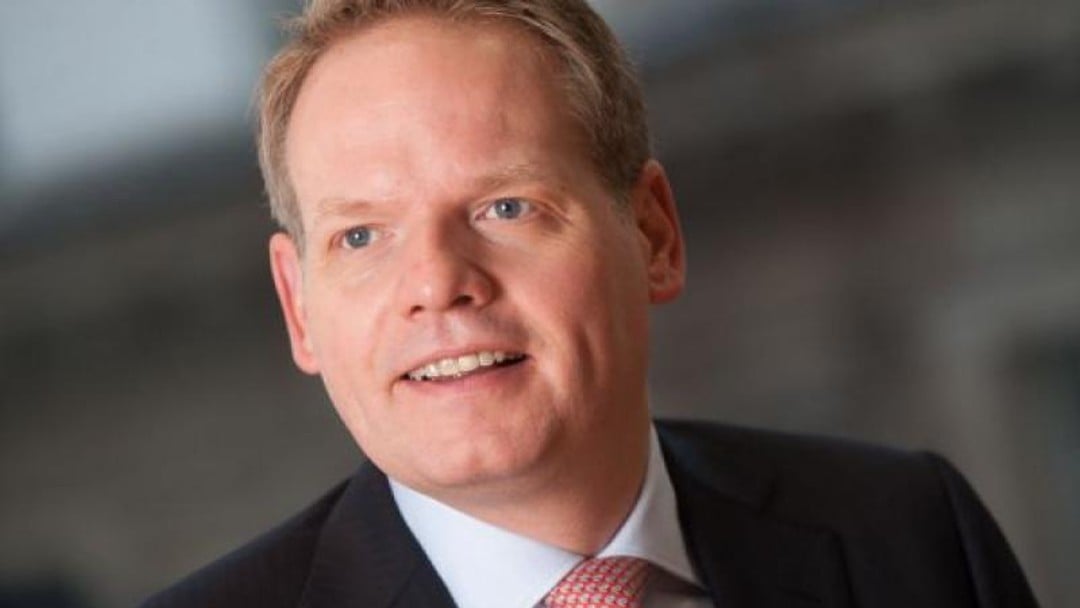Andrew Leaitherland: Why DWF is not just a 'merger monkey'

DWF is not just a 'merger monkey' and deserves to be a top-20 UK law firm, its managing partner tells Manju Manglani
DWF has undertaken five mergers in just over a year and is on track to becoming a top-20 UK law firm by 2015. Its ambitious growth plan, led by managing partner Andrew Leaitherland, has resulted in revenues increasing from £32m at the time of his appointment in 2006 to around £185m today.
However, Leaitherland insists that this growth is not solely the result of the string of mergers that he has led the firm through. "Lots of people look at us and think we're just merger monkeys and that's the only reason why we've grown," he reflects. "But, in the past seven or eight years, we've always achieved at least ?10 or 11 per cent organic growth a year - and that's a plan we seek to continue."
Leaitherland says this is largely because the firm has been rewarding cross-selling within its remuneration system. "I think that's down to people looking for those cross-referral opportunities and making sure that we build relationships with our clients to maximise value," he says. "For us, delivering growth in the business - regardless of whether that growth is in your own backyard or that of others - you get rewarded on the basis of that growth."
Strategic direction
Leaitherland is clear that he wants DWF to rank among the largest and most successful in the UK. His initial target in 2008 for the firm to be in the top 30 by 2010 was knocked off course by the recession; this was later revised to the ?firm joining the top 20 by 2015.
"We want to be in the top 20 by turnover with a 22 per cent net margin, ?but with culture and values intact," ?says Leaitherland.
DWF reached number 34 in 2011/12, with revenues of £102m. But, with revenues expected to reach £185m in 2012/13, Leaitherland hopes the firm will come in at 21st or 22nd place this year and for it to be comfortably within the ?top 20 next year. "We will be striving ?for revenues in excess of £200m in 2013/14," he says.
Leaitherland plans for the firm to grow further both in the UK and abroad - although he notes that an alternative business structure (ABS) is not on the cards at present. "ABSs may not actually achieve what people want them to achieve," he suggests, adding that ?he would consider an ABS if it was a "client-led initiative". In the meantime, Leaitherland says, DWF will "continue ?to invest and grow organically through lateral hires and look for selective ?mergers where appropriate".
London in particular will be a key ?focus for further development. "I think we have a really dominant position in the regions now, particularly on the M62 corridor across Liverpool, Manchester and Leeds. I think we're where we wanted to be, with maybe a bit more insurance to go in there. Birmingham will continue to grow, Bristol will continue to grow, London will grow significantly and we will look for the right opportunities overseas".
However, growing DWF into a global law firm is not in Leaitherland's plans. "In the next few years, I'd say we'll have opened half a dozen or so international offices, but none of them massive and all of them client specific," he says.
"So, if we've got larger clients that need to be supported in a particular territory, we'll look at that. But we're not just going to stick our flag in the ground and say 'right we're here, can we have some work please?', which is the model adopted by a number of global law firms."
Could this international growth lead to mergers with law firms in client-preferred jurisdictions? Leaitherland isn't sure. "I think we quite like our culture and values and it may be quite difficult to get another international firm that sits alongside our culture and values, because that's at the forefront of what we want to achieve - ?it's keeping that intact," he says.
Equally, he isn't keen on the prospect of DWF merging with a larger UK law firm. "I'm not sure that it would be beneficial to our people and our clients, because it may well take away from the culture and values of our business," he says.
Leaitherland believes that all six of the smaller law firms that have been folded into DWF since he was appointed managing partner - Ricksons in January 2007, followed by Crutes, Buller Jeffries, Biggart Baillie, Fishburns and Cobbetts between January 2012 and February 2013 - had "a similar set of values and culture".
How far that may have been true is debatable. However, it seems that DWF has made a concerted effort to integrate both the people and the systems of the acquired firms.
"We have a centralised integration team that deals with the nuts and bolts in terms of our technology, practice management systems, HR policies and so on, but we also have an executive partner in each location, and he's responsible for the culture and values in that location and does the hands-on people integration."
A key part of that integration process is rewarding cross-selling across practice groups, which DWF does by the way it measures profitability.
"We have national practice groups that have P&L responsibility - we always cut P&Ls on a national basis to make sure people work together," he says. "We also fold people into those P&Ls, with a view ?to making sure that, if there are four people from different firms, they work together as part of a cohesive team."
While Leaitherland strongly believes that each of the mergers and their integration has been successful, he does admit that more work needs to be done to ensure the market perception of DWF matches up with where the firm is today.
"I think we are probably perceived as a smaller regional firm, despite the fact that we are significantly beyond that now. We've got a lot to do to educate people ?in terms of the benefits of working with DWF and how we can support clients going forward," he says.
"That is particularly the case in areas that we haven't operated in for too long. We've got a lot more to do in London, although we've got 300 people in the capital, but we've got a lot more brand awareness to raise there."
Managing partner impact
At the age of 36, Leaitherland was the ?first person at DWF to be given the role of managing partner. His appointment in January 2006 marked a turning point for the firm and coincided with an increase ?in market consolidation.
"From a defensive perspective, we ?felt we had to embark on a growth strategy with a view to protecting the business but also potentially enhancing it as well. So that led to the first merger we'd done since 1991."
Leaitherland is credited with having conceived the firm's ambitious growth ?plan and is largely responsible for delivery to it. "The board sets the strategy in conjunction with the equity partners, ?but holds me accountable in terms of delivery to that strategy," he says.
The firm's fairly short strategy document has been deliberately ?crafted as such, says Leaitherland, ?who notes that he abhors lengthy decision-making discussions.
"Our focus is less about talking about what we're going to do and more about getting it done," he says. "I think what ?a lot of law firms do wrong is spend far ?too much time navel-gazing and thinking 'what if?' as opposed to just doing."
"A lot of firms have 20 to 21-page strategy documents, but ours is 14 paragraphs on a page and a half," he notes. "For me, strategy is nothing more than a series of well-executed decisions. You can have the direction in terms of where you want to go, and it's just making the right decisions that make it happen."
Buy-in of that strategy across the firm is a big priority for Leaitherland. "The more involved in the strategy and the execution of that strategy people are, the more they understand it," he says.
"If you walked into the reception at our Liverpool office and said to the lady at the front desk 'excuse me, can you tell me what your strategy is?', I'd be really disappointed if she didn't say to you ?'we want to be a top-20 law firm by ?2015', because everyone understands what that is."
Career choice
Leaitherland, who in March 2012 was reappointed unopposed for a further ?three-year term as managing partner, ?has no plans for a career change.
Asked if he would return to fee ?earning after his current term ends, ?he says "no - that would be boring!"
"Much as I enjoy working with ?clients, I don't hold a candle for a pure fee-earning role moving forward," he adds. "I really enjoy the responsibility I have in terms of pulling the firm together."
Indeed, Leaitherland hopes to ?continue as managing partner for the foreseeable future. "Having relative youthfulness, I think I've got quite a few years left in me to do this job, which is pretty much all-encompassing as it is in terms of full executive responsibility."
"I enjoy what I do, I get tremendous support and I get great job satisfaction. ?As long as I keep delivering, then ?hopefully the partners will be happy ?with that, and away we go!"
Leaitherland certainly has good reason to hope for re-election in 2015 - particularly since DWF seems likely to hit his target of becoming a top-20 firm by turnover a year ahead of schedule. The bigger challenge, however, will be ?to establish DWF in the minds of prospective clients and hires as a firm ?of the same calibre as others of that ?size, and to move away from its current image as a 'merger monkey'.
Manju Manglani is the editor of Managing Partner (www.managingpartner.com)

